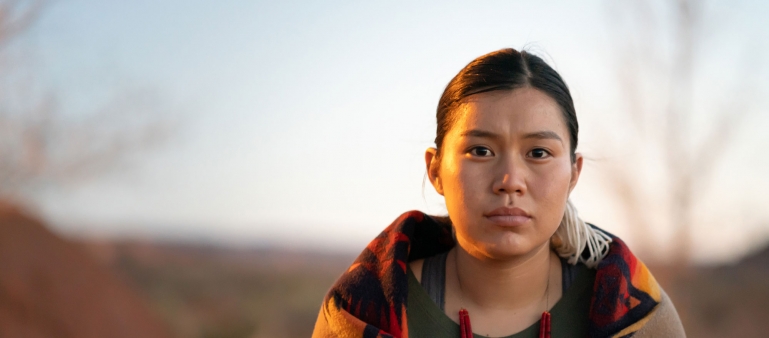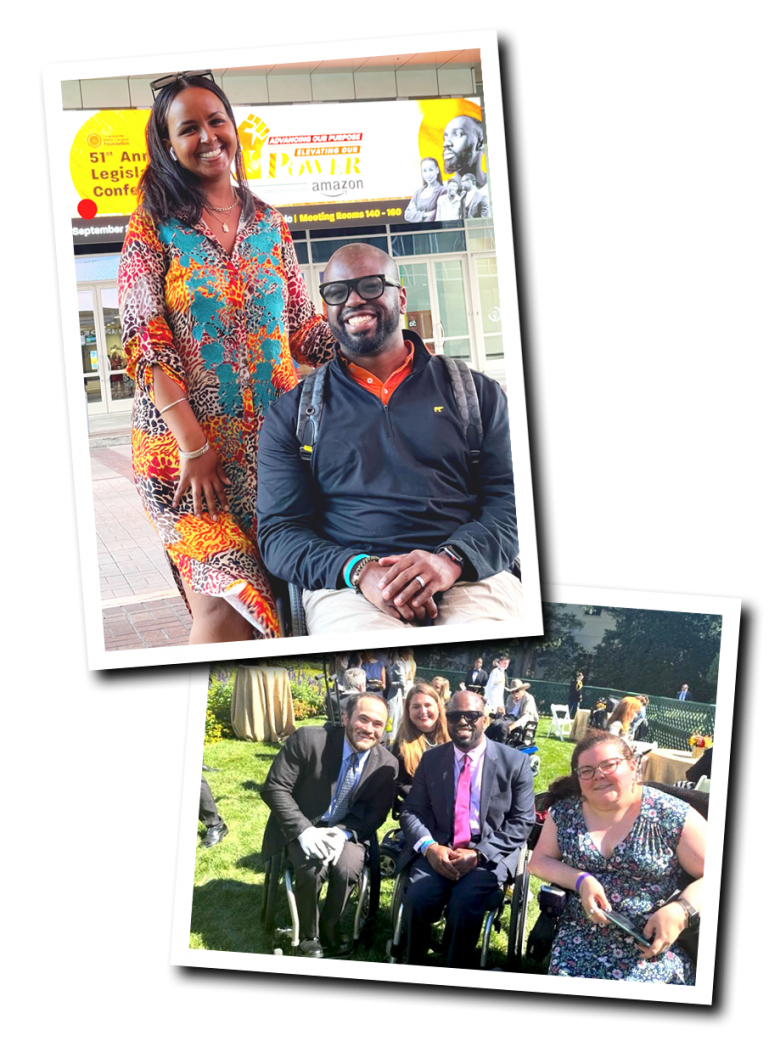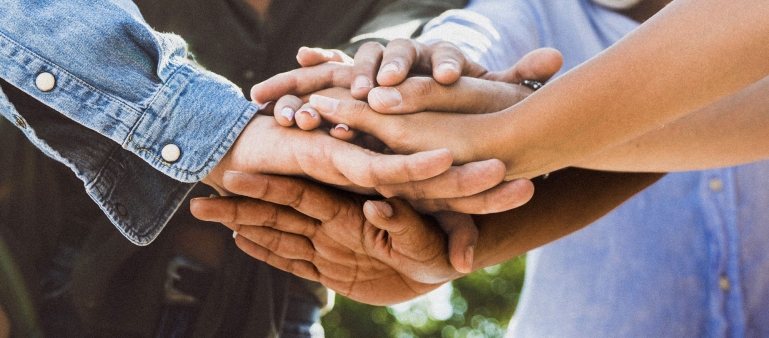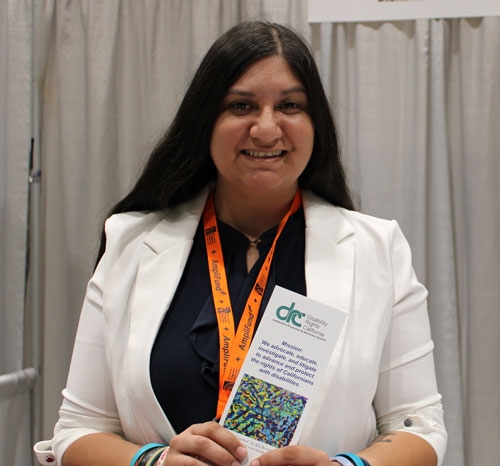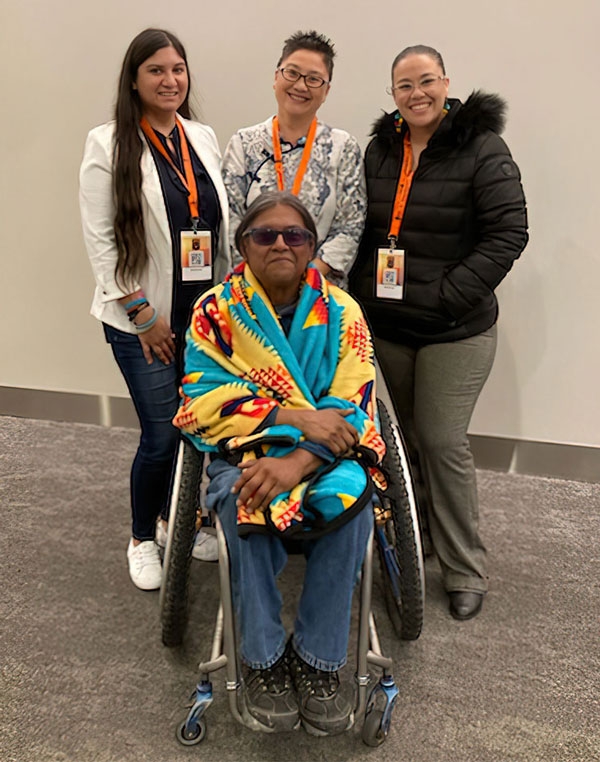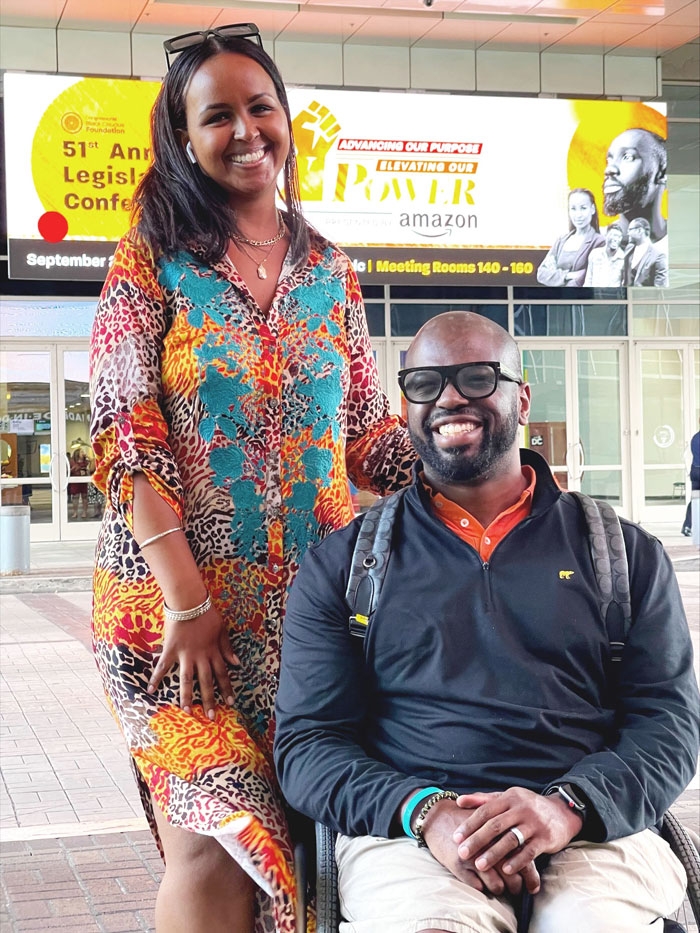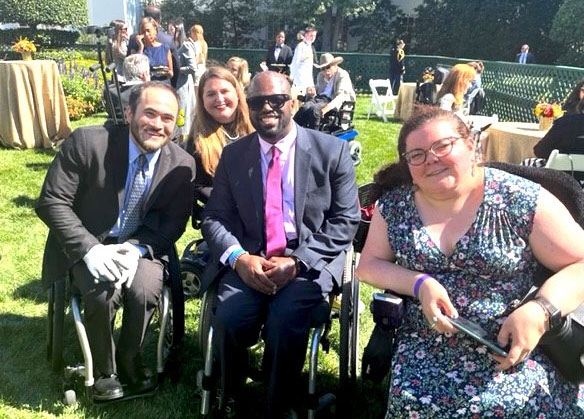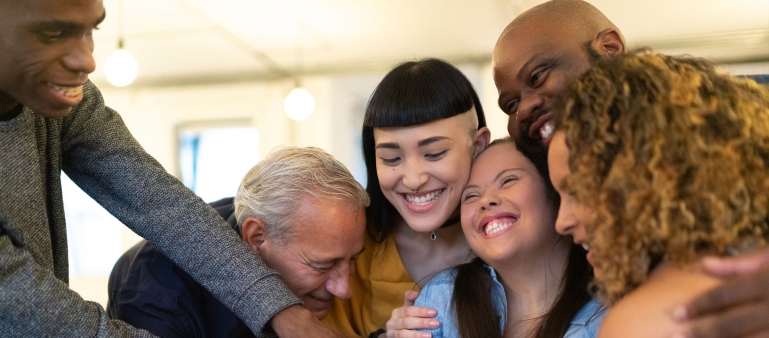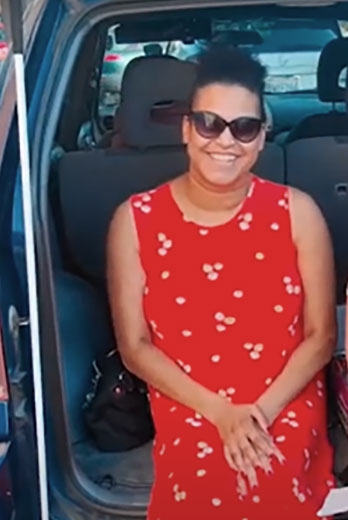2022 Annual Report - Community Engagement

2022 Annual Report - Community Engagement
Advocacy Victories Community Engagement
Building Connections at the National Conference of American Indians
Disability Rights California attended the National Conference of American Indians (NCAI) to engage and foster relationships across the Native American community. This was the first year that DRC was invited to attend the conference, which changes locations annually.
DRC hosted an information booth at the conference’s native marketplace as well as joined a panel discussion on disabilities in the native community. Jesse Lara, an advocate with DRC’s Advocacy and Community Engagement (ACE) team attended the conference and spoke during a panel discussion.
Access for Native Americans with Disabilities
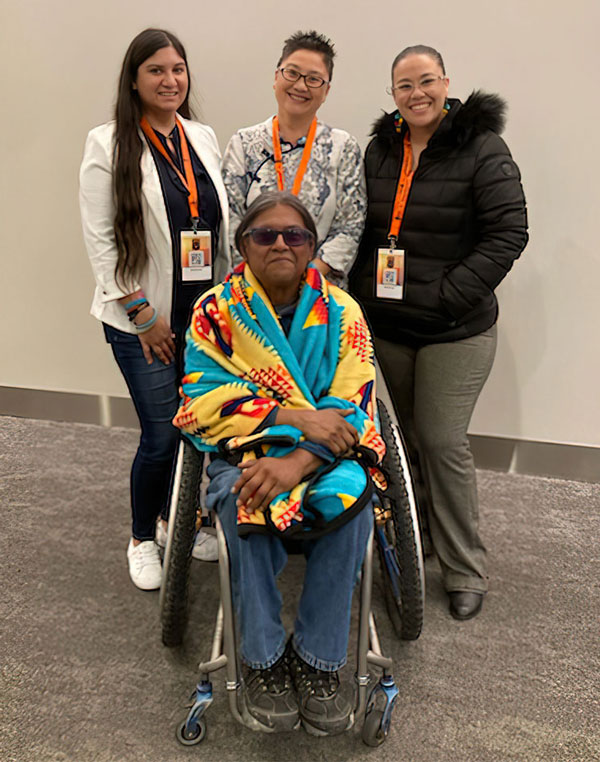
Joseph Ray, the chairperson for the NCAI disability subcommittee invited Lara to speak as part of their panel discussion at the conference. The subcommittee has a major focus on elder care in independent living centers and improving healthcare access for elders through policy and legislation.
Ray is a member of the Laguna Pueblo in New Mexico. He has been a manual wheelchair user since a car accident in his 20’s. After his accident, he started to get involved in the disability movement within the Native American community and has been the disability subcommittee chairperson at NCAI since 2010.
Ray said that his role at the NCAI is to advocate for policies that advance the rights and visibility of both the elderly and disabled, noting that lack of funds is often a barrier to support.
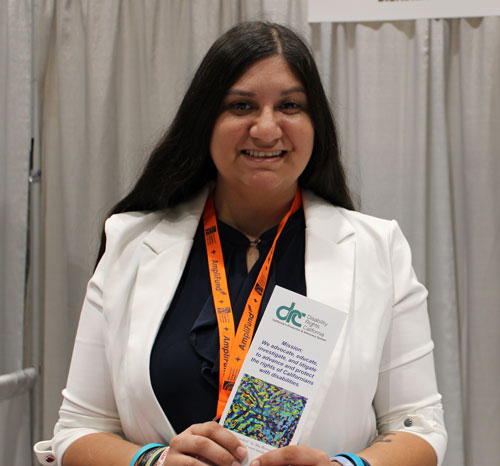
Lara, who is a member of the Band of Western Mono Native Americans said that many native communities focus on the person as a whole—physically, emotionally, spiritually, and mentally—instead of looking at their individual disability.
The lack of access for Native Americans with disabilities is multi-faceted—from a historical distrust of state institutions because of abuse and broken promises, to inadequate internet access, and physical barriers to care. These misgivings require thoughtful engagement to earn trust.
Through her engagement with the native communities of California, Lara works to build trust to share the ways that DRC could help empower native people with disabilities. “My hope for DRC and within the native communities is to help build a relationship with them, help become partners to them through legislative work, community events, and legal trainings,” Lara said.
Uplifting Individual Rights, Demolishing Stigma
Disability Rights California’s Office of Clients’ Rights Advocacy (OCRA) held a free two-day virtual conference specifically for members of the Black and African American community who use regional center services.
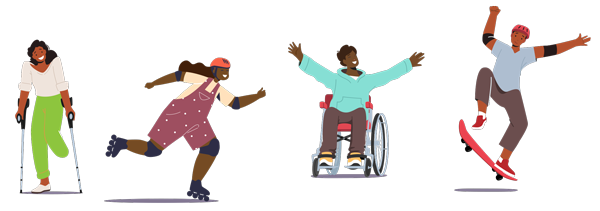
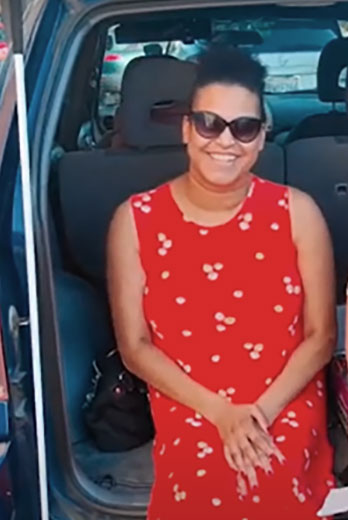
The Conference
Demolishing Stigma, Reclaiming Power, & Measuring Success: Disability in the Black & African American Community was a 2-day conference— focused on what it means to be Black with a disability, how to advocate for more services from regional centers, combat barriers to enrolling in the self-determination program, and more.
Filling a Need
Elizabeth Campos, Northern California outreach coordinator for OCRA, said, “OCRA identified a need for this conference through focus groups in the fall of 2021. The feedback OCRA received was that it was important to provide a space to discuss the unique challenges that Black and African American people face both externally and internally about disability.”
So, the conference’s goal was to provide information that would be relevant to both people with disabilities, as well as individuals like family members, circles of support, service providers, potential employers, doctors, and educators. OCRA wanted the conference to serve anyone who could be someone's ally or be someone's barrier to getting services.
How to Start Preparing for a Disaster (Video)
People with disabilities often face added challenges during a disaster, making it harder to evacuate or find safe shelter. DRC created this video to provide information on how people with disabilities can plan and prepare for a wildfire disaster. Enjoy our video!
Video is also available in the following languages
- Preparing for a Disaster (ASL)
- Preparing for a Disaster (Descriptive Audio)
- Preparing for a Disaster (Spanish)
- Preparing for a Disaster (Vietnamese)
- Preparing for a Disaster (Chinese)
- Preparing for a Disaster (Korean)
- Preparing for a Disaster (Russian)
- Preparing for a Disaster (Hmong)
- Preparing for a Disaster (Khmer)
- Preparing for a Disaster (Armenian)
- Preparing for a Disaster (Arabic)
- Preparing for a Disaster (Farsi)
DRC Attends Congressional Black Caucus Foundation Conference
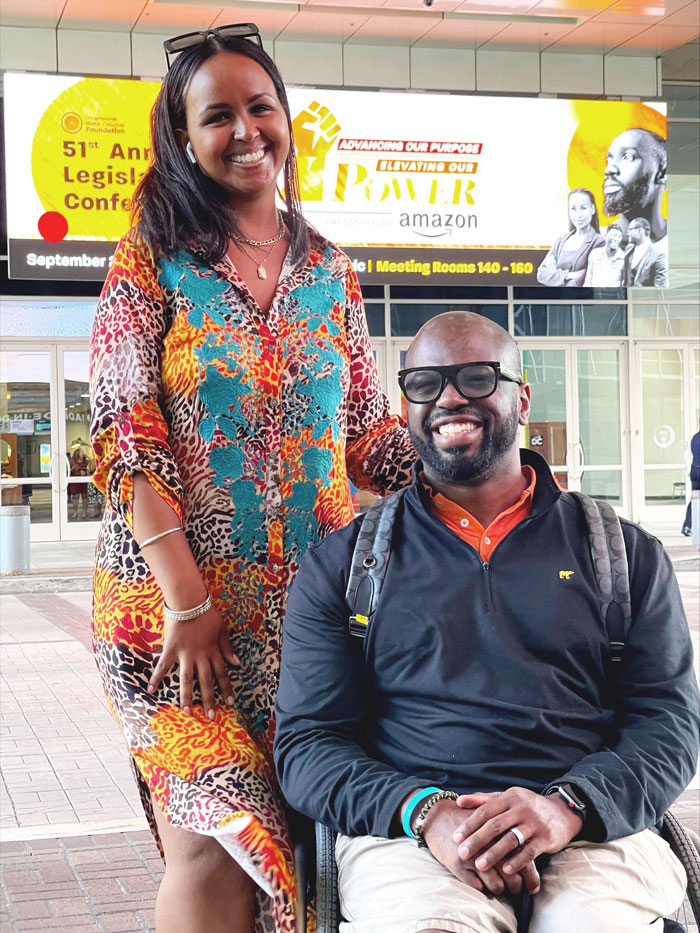
In September, Eric Harris, DRC’s Public Policy Director and Sawait Seyoum, Senior Policy Advocate attended the Congressional Black Caucus Foundation’s Annual Legislative Conference in Washington D.C.
The conference explored policy and critical issues from a Black perspective through workshops and discussions on topics like mental health, healthcare, and education.
“It was really an incredible experience just to be in the room, just to be a part of this conference with members of Congress, key staffers, and leaders from all over the United States that are working on these issues,” Sawait Seyoum said.
What’s Next
Both Seyoum and Harris are optimistic about the connections they worked to build during the D.C. events. They hope that connecting with leaders and other organizations across the nation will help elevate DRC’s visibility, as well as provides opportunities to learn and grow.
“What I'm really excited about is connecting with many of the leaders of the various organizations throughout the United States where we can partner,” Seyoum said. “I think there's strength in numbers and we can learn and build each other up.”
